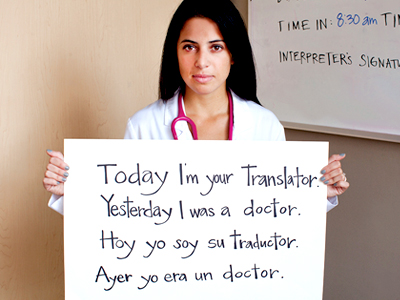
El reconocimiento a los inmigrantes profesionales continúa siendo un reto ---
En el 2007, una joven doctora llamada Paola dejó su trabajo y vida en Chile a fin de mudarse a los Estados Unidos. Originaria de Colombia, tenía un buen trabajo en uno de los hospitales públicos más grandes de Chile. Fue en ese hospital en el que conoció a un hombre estadounidense quien eventualmente se convirtió en su esposo.

